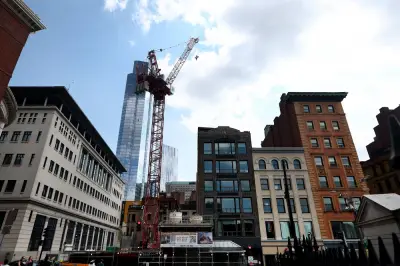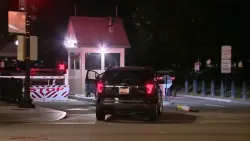Boston Zoning Commission chair to recuse himself from vote on contentious downtown skyscraper plan

Boston Zoning Commission Chair Michael Nichols who heads a downtown advocacy group mentioned he plans to recuse himself from Wednesday s vote on a contentious zoning plan that would clear the way for more skyscrapers downtown Nichols president of the Downtown Boston Alliance declared that although he was cleared by the state Ethics Commission to take part in the vote he ultimately opted not to weigh in on the zoning changes proposed in PLAN Downtown in his official limit as chair of the Zoning Commission I was able to get a state ethics opinion that held that I do not certainly have any conflicts the next morning that run afoul of state law but I nonetheless don t want it to be a distraction so I m opting not to participate Nichols notified the Herald Tuesday Nichols announced he sought the ethics opinion based on a feasible conflict of interest he may have in voting on the downtown zoning plan due to his advocacy group s work to analyze the plan for so long He is the chair and president of the Downtown Boston Alliance which represents commercial property owners in the city s core Nichols explained he is also planning to turn the gavel over to Commission Vice Chair Jill Hatton for the duration of the meeting that pertains to the downtown zoning plan Ahead of the vote a society hearing will be held The Downtown Boston Alliance submitted a letter in endorsement of the plan and its proposed creation of new skyline districts that would allow for - foot towers in parts of the historic downtown to the Zoning Commission last Friday It was sent by DBA Chief of Staff Kelsey Pramik The plan s passage in the present day is critical for completing the neighborhood s needed transformation such that it can align with a new normal that requires a broader mix of uses a modernized and more predictable zoning code and a housing-first agenda to welcome a new generation of residents the DBA letter states The Alliance sent a similar letter of encouragement to the Boston Planning and Advance Agency Board last month ahead of the board s - vote in favor of the zoning plan If approved by the Zoning Commission the Wu administration s downtown plan would go into effect The plan would clear the way for new buildings to tower up to feet over the historic downtown It has been a source of contention for other stakeholders particularly the Downtown Boston Neighborhood Association which has described the proposed changes as destructive in that they would alter the character of the city s core and turn it into Manhattan Critics have also flagged foreseen violations to the state s shadow law which was enacted in and restricts the creation of new shadows on the Boston Common and Residents Garden at certain times of the day The Association supports additional towering in the Financial District east of Washington Street where such heights have traditionally been allowed It opposes new skyscrapers in the historic and increasingly residential Ladder Blocks and Park Plaza neighborhoods to the west of Washington Street and adjacent to the Boston Common Related Articles South End surge Arrests spiked by this summer amid Mass and Cass spillover Boston Police Boston businesses are being battered by shoplifting to feed Mass and Cass drug area Boston confronts opioid epidemic by crowdsourcing a way of life change Ex-Boston City Councilor Tania Fernandes Anderson heads to prison Friday after corruption conviction Mayor Wu to host new State of the Schools address Tony Ursillo a downtown resident and member of the Association disclosed Tuesday that there are glaring deficiencies in the current proposal s attempt to achieve key goals of the plan By giving special medication allowing -foot luxury towers to a limited cherry-picked sites in the blocks next to Boston Common the city will produce hardly any affordable housing will disrupt a historic neighborhood and will squeeze out opportunities for small businesses to get created and thrive Ursillo communicated the Herald He urged the Zoning Commission to allow time to consider probable changes such as eliminating special exceptions and keeping lower height limits intact around the Boston Common

